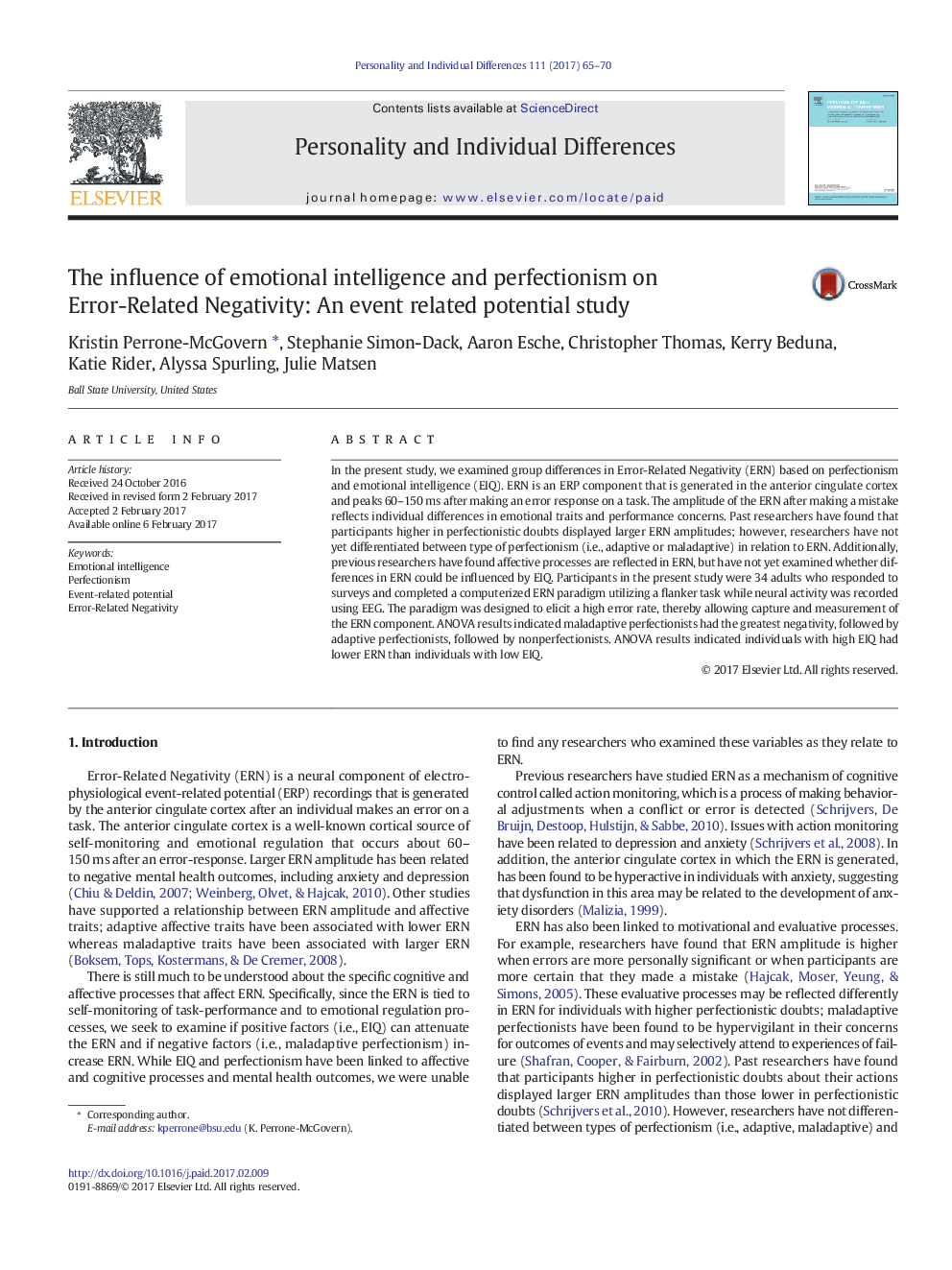ترجمه فارسی عنوان مقاله
تأثیر هوش هیجانی و کمال گرایی بر نگرانی های مرتبط با خطا: یک مطالعه بالقوه مرتبط با رویداد
عنوان انگلیسی
The influence of emotional intelligence and perfectionism on Error-Related Negativity: An event related potential study
| کد مقاله | سال انتشار | تعداد صفحات مقاله انگلیسی |
|---|---|---|
| 120723 | 2017 | 6 صفحه PDF |
منبع

Publisher : Elsevier - Science Direct (الزویر - ساینس دایرکت)
Journal : Personality and Individual Differences, Volume 111, 1 June 2017, Pages 65-70
ترجمه کلمات کلیدی
هوش هیجانی، کمال گرایی، پتانسیل مربوط به رویداد، نگرانی مربوط به خطا،
کلمات کلیدی انگلیسی
Emotional intelligence; Perfectionism; Event-related potential; Error-Related Negativity;

